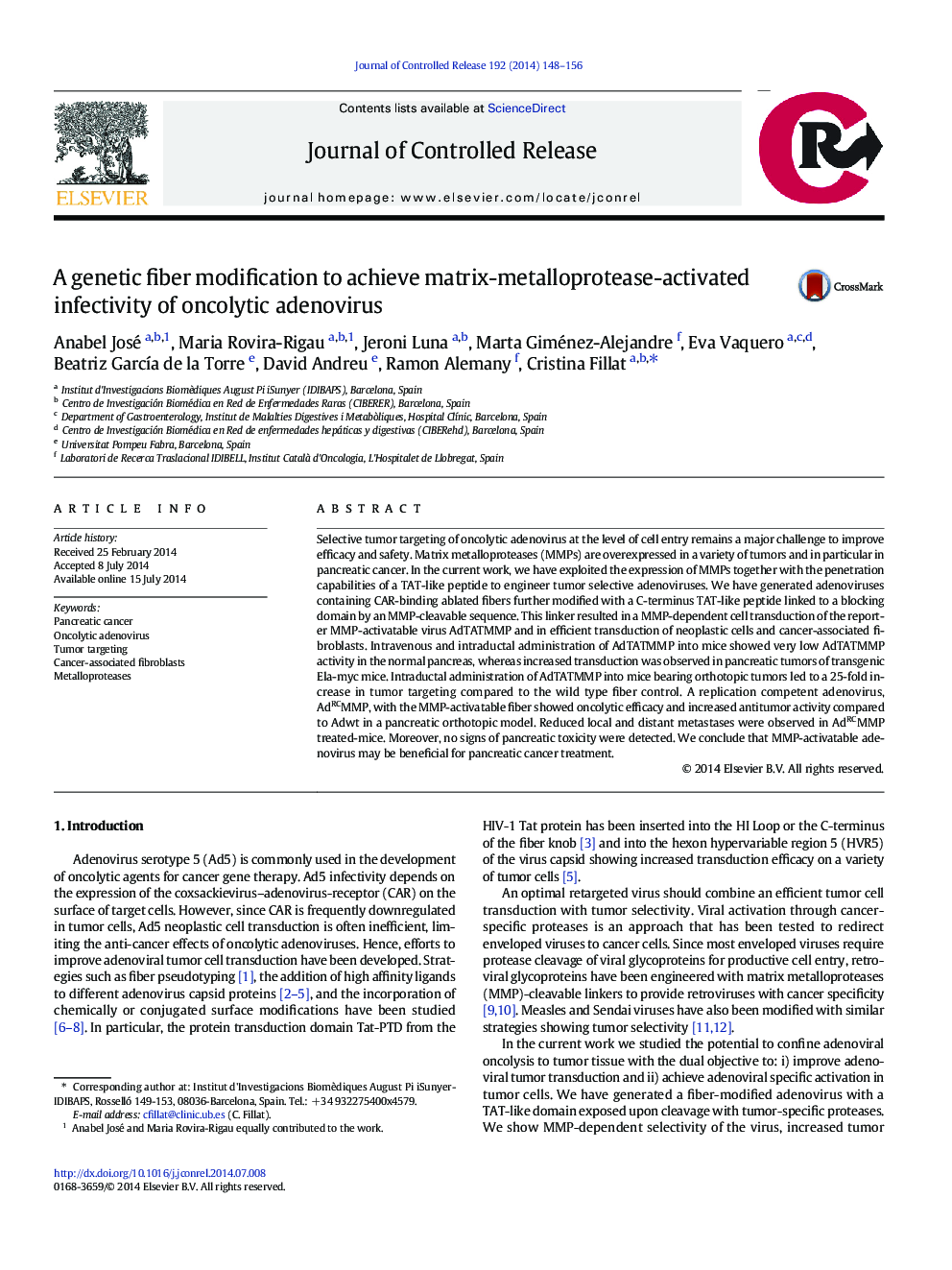| کد مقاله | کد نشریه | سال انتشار | مقاله انگلیسی | نسخه تمام متن |
|---|---|---|---|---|
| 1423928 | 1509057 | 2014 | 9 صفحه PDF | دانلود رایگان |
Selective tumor targeting of oncolytic adenovirus at the level of cell entry remains a major challenge to improve efficacy and safety. Matrix metalloproteases (MMPs) are overexpressed in a variety of tumors and in particular in pancreatic cancer. In the current work, we have exploited the expression of MMPs together with the penetration capabilities of a TAT-like peptide to engineer tumor selective adenoviruses. We have generated adenoviruses containing CAR-binding ablated fibers further modified with a C-terminus TAT-like peptide linked to a blocking domain by an MMP-cleavable sequence. This linker resulted in a MMP-dependent cell transduction of the reporter MMP-activatable virus AdTATMMP and in efficient transduction of neoplastic cells and cancer-associated fibroblasts. Intravenous and intraductal administration of AdTATMMP into mice showed very low AdTATMMP activity in the normal pancreas, whereas increased transduction was observed in pancreatic tumors of transgenic Ela-myc mice. Intraductal administration of AdTATMMP into mice bearing orthotopic tumors led to a 25-fold increase in tumor targeting compared to the wild type fiber control. A replication competent adenovirus, AdRCMMP, with the MMP-activatable fiber showed oncolytic efficacy and increased antitumor activity compared to Adwt in a pancreatic orthotopic model. Reduced local and distant metastases were observed in AdRCMMP treated-mice. Moreover, no signs of pancreatic toxicity were detected. We conclude that MMP-activatable adenovirus may be beneficial for pancreatic cancer treatment.
Figure optionsDownload high-quality image (188 K)Download as PowerPoint slide
Journal: Journal of Controlled Release - Volume 192, 28 October 2014, Pages 148–156
